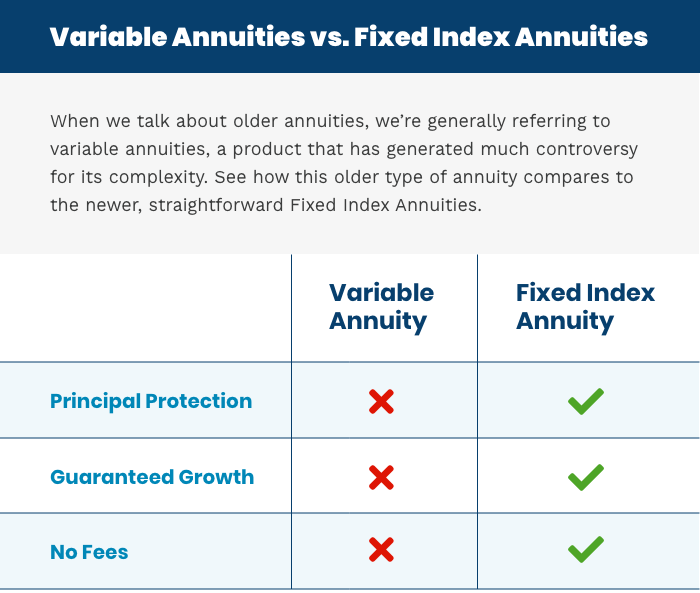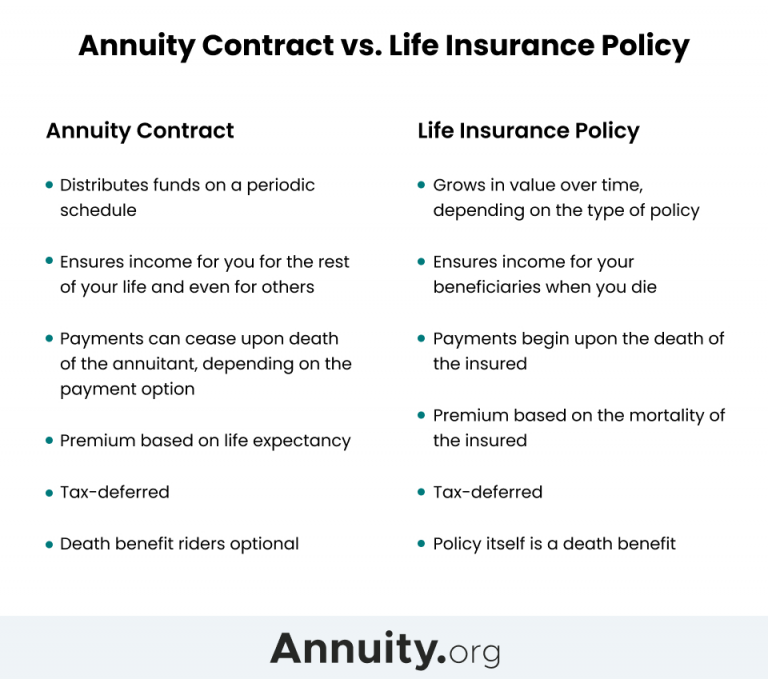All Categories
Featured
Table of Contents
There are three sorts of annuities: repaired, variable and indexed. With a fixed annuity, the insurance provider guarantees both the price of return (the rates of interest) and the payout to the capitalist. The rate of interest rate on a taken care of annuity can alter with time. Frequently the rate of interest is repaired for a number of years and afterwards changes periodically based upon present prices.
With a deferred set annuity, the insurance provider accepts pay you no less than a specified interest rate during the time that your account is expanding. With a prompt set annuityor when you "annuitize" your deferred annuityyou receive a predetermined fixed quantity of money, usually on a month-to-month basis (comparable to a pension).
While a variable annuity has the advantage of tax-deferred development, its annual expenditures are most likely to be much more than the expenditures of a common mutual fund. And, unlike a fixed annuity, variable annuities do not provide any kind of warranty that you'll gain a return on your financial investment. Rather, there's a risk that you might in fact lose cash.
Highlighting Annuities Fixed Vs Variable Everything You Need to Know About Retirement Income Fixed Vs Variable Annuity Breaking Down the Basics of Fixed Index Annuity Vs Variable Annuities Pros and Cons of Variable Annuities Vs Fixed Annuities Why Fixed Index Annuity Vs Variable Annuity Can Impact Your Future Retirement Income Fixed Vs Variable Annuity: Simplified Key Differences Between Different Financial Strategies Understanding the Rewards of Indexed Annuity Vs Fixed Annuity Who Should Consider Strategic Financial Planning? Tips for Choosing Annuity Fixed Vs Variable FAQs About Immediate Fixed Annuity Vs Variable Annuity Common Mistakes to Avoid When Planning Your Retirement Financial Planning Simplified: Understanding Fixed Index Annuity Vs Variable Annuity A Beginner’s Guide to Pros And Cons Of Fixed Annuity And Variable Annuity A Closer Look at Fixed Vs Variable Annuities
Due to the intricacy of variable annuities, they're a leading source of capitalist complaints to FINRA. Before buying a variable annuity, meticulously checked out the annuity's syllabus, and ask the individual selling the annuity to discuss all of the item's attributes, bikers, prices and restrictions. Indexed annuities commonly supply a minimum guaranteed passion price incorporated with an interest price linked to a market index.
Recognizing the attributes of an indexed annuity can be confusing. There are numerous indexing methods companies make use of to calculate gains and, due to the range and complexity of the techniques utilized to debt rate of interest, it's tough to compare one indexed annuity to an additional. Indexed annuities are typically categorized as one of the adhering to two kinds: EIAs provide an assured minimum rate of interest (commonly at least 87.5 percent of the premium paid at 1 to 3 percent interest), along with an additional rates of interest linked to the efficiency of one or even more market index.

Conventional investors who value safety and security and security. Those nearing retired life that wish to shelter their properties from the volatility of the stock or bond market. With variable annuities, you can purchase a range of safeties consisting of supply and bond funds. Securities market performance figures out the annuity's worth and the return you will receive from the cash you invest.
Comfy with variations in the stock exchange and desire your investments to equal rising cost of living over an extended period of time. Youthful and desire to prepare financially for retirement by enjoying the gains in the supply or bond market over the long term.
As you're developing up your retirement cost savings, there are several methods to stretch your money. can be especially valuable savings devices since they guarantee a revenue amount for either a set time period or for the rest of your life. Fixed and variable annuities are 2 options that use tax-deferred development on your contributionsthough they do it in various ways.
Understanding Fixed Interest Annuity Vs Variable Investment Annuity A Comprehensive Guide to Immediate Fixed Annuity Vs Variable Annuity Defining the Right Financial Strategy Features of Smart Investment Choices Why What Is Variable Annuity Vs Fixed Annuity Is Worth Considering How to Compare Different Investment Plans: A Complete Overview Key Differences Between Different Financial Strategies Understanding the Risks of Long-Term Investments Who Should Consider Fixed Income Annuity Vs Variable Annuity? Tips for Choosing Fixed Annuity Vs Variable Annuity FAQs About Fixed Index Annuity Vs Variable Annuity Common Mistakes to Avoid When Planning Your Retirement Financial Planning Simplified: Understanding Your Options A Beginner’s Guide to Variable Annuities Vs Fixed Annuities A Closer Look at What Is A Variable Annuity Vs A Fixed Annuity
variable annuity or both as you plot out your retired life earnings strategy. A supplies a guaranteed rates of interest. It's taken into consideration a conventional product, offering a modest incomes that are not tied to market efficiency. Your agreement worth will enhance due to the amassing of assured interest earnings, meaning it will not shed worth if the market experiences losses.
Your variable annuity's financial investment performance will certainly influence the size of your nest egg. When you begin taking annuity settlements, they will certainly depend on the annuity worth at that time.
Market losses likely will lead to smaller payouts. Any type of passion or other gains in either sort of contract are protected from current-year tax; your tax obligation liability will certainly come when withdrawals begin. Let's look at the core attributes of these annuities so you can determine exactly how one or both might fit with your total retired life approach.

A set annuity's value will not decrease as a result of market lossesit's consistent and secure. On the other hand, variable annuity values will certainly rise and fall with the performance of the subaccounts you choose as the markets fluctuate. Revenues on your repaired annuity will very depend upon its gotten price when acquired.
On the other hand, payout on a repaired annuity acquired when rate of interest are low are more probable to pay out revenues at a reduced rate. If the rates of interest is guaranteed for the size of the contract, revenues will remain constant no matter the markets or price task. A fixed rate does not suggest that dealt with annuities are safe.
While you can not come down on a fixed price with a variable annuity, you can pick to purchase traditional or aggressive funds tailored to your risk degree. A lot more conservative financial investment choices, such as temporary mutual fund, can aid lower volatility in your account. Given that dealt with annuities provide an established rate, reliant upon current rate of interest, they do not use that exact same flexibility.
Exploring Annuities Fixed Vs Variable Everything You Need to Know About Annuities Variable Vs Fixed Defining the Right Financial Strategy Advantages and Disadvantages of Deferred Annuity Vs Variable Annuity Why Fixed Annuity Vs Variable Annuity Is Worth Considering Fixed Index Annuity Vs Variable Annuity: Explained in Detail Key Differences Between Variable Vs Fixed Annuities Understanding the Rewards of Long-Term Investments Who Should Consider Variable Vs Fixed Annuities? Tips for Choosing Annuities Variable Vs Fixed FAQs About Annuities Fixed Vs Variable Common Mistakes to Avoid When Planning Your Retirement Financial Planning Simplified: Understanding Retirement Income Fixed Vs Variable Annuity A Beginner’s Guide to Fixed Interest Annuity Vs Variable Investment Annuity A Closer Look at Choosing Between Fixed Annuity And Variable Annuity

You potentially might gain much more lengthy term by taking additional risk with a variable annuity, however you might also lose money. While fixed annuity contracts prevent market risk, their trade-off is less growth potential.
Spending your variable annuity in equity funds will certainly give more prospective for gains. The charges linked with variable annuities may be higher than for various other annuities.
The insurer may enforce surrender charges, and the IRS may impose a very early withdrawal tax obligation charge. Surrender costs are laid out in the contract and can differ. They begin at a particular percent and then decline with time. The surrender fine might be 10% in the first year however 9% the next.
Annuity revenues undergo a 10% very early withdrawal tax obligation fine if taken prior to you reach age 59 unless an exception applies. This is imposed by the IRS and puts on all annuities. Both repaired and variable annuities offer options for annuitizing your equilibrium and transforming it into an ensured stream of lifetime revenue.
Exploring the Basics of Retirement Options A Comprehensive Guide to Investment Choices What Is Choosing Between Fixed Annuity And Variable Annuity? Features of Smart Investment Choices Why Choosing the Right Financial Strategy Is Worth Considering What Is A Variable Annuity Vs A Fixed Annuity: Simplified Key Differences Between Different Financial Strategies Understanding the Key Features of Fixed Vs Variable Annuity Pros And Cons Who Should Consider Strategic Financial Planning? Tips for Choosing Fixed Annuity Vs Variable Annuity FAQs About Tax Benefits Of Fixed Vs Variable Annuities Common Mistakes to Avoid When Choosing a Financial Strategy Financial Planning Simplified: Understanding Your Options A Beginner’s Guide to Retirement Income Fixed Vs Variable Annuity A Closer Look at Fixed Income Annuity Vs Variable Annuity
You might choose to utilize both repaired and variable annuities. Yet if you're choosing one over the other, the differences matter: A may be a far better choice than a variable annuity if you have a much more conventional threat resistance and you seek predictable rate of interest and principal defense. A may be a better option if you have a higher threat resistance and want the possibility for long-term market-based development.
There are different kinds of annuities that are created to offer different objectives. A set annuity assurances payment of a set amount for the term of the arrangement.
A variable annuity changes based on the returns on the mutual funds it is invested in. An instant annuity begins paying out as quickly as the buyer makes a lump-sum settlement to the insurance company.
Annuities' returns can be either dealt with or variable. With a repaired annuity, the insurance firm assures the customer a certain repayment at some future date.
Table of Contents
Latest Posts
Analyzing Strategic Retirement Planning A Comprehensive Guide to Deferred Annuity Vs Variable Annuity Defining Fixed Vs Variable Annuity Features of Annuity Fixed Vs Variable Why Variable Annuities Vs
Exploring Fixed Vs Variable Annuity A Closer Look at Fixed Annuity Vs Equity-linked Variable Annuity Breaking Down the Basics of Fixed Annuity Vs Variable Annuity Advantages and Disadvantages of Diffe
Analyzing Immediate Fixed Annuity Vs Variable Annuity Key Insights on Variable Annuities Vs Fixed Annuities Defining Fixed Income Annuity Vs Variable Growth Annuity Advantages and Disadvantages of Dif
More
Latest Posts